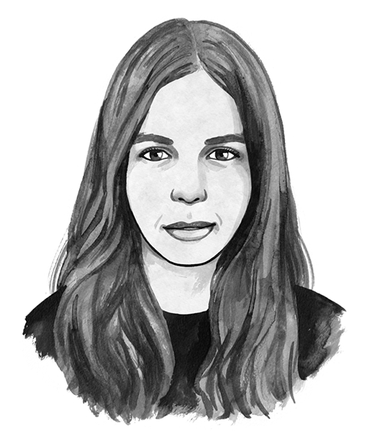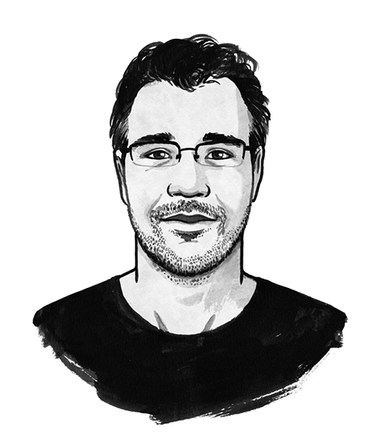In Poland and India , citizens have to demonstrate compliance with quarantine by sending in selfies via a special app.
In Singapore , more than half a million people use Trace Together, an app that uses bluetooth to keep track of who they were all close to. In Israel , the internal security service Shin Bet analyses location data from all smartphones in the country to assess who may have come into contact with people carrying coronavirus.
In Tunisia , people out on the streets must show their ID papers to police robots that patrol the capital city, Tunis, while in the UK and Spain drones have been used to enforce lockdowns.
At least 20 countries are now monitoring their residents’ movements, using a variety of surveillance tools. Our smartphones have become a key part of the response to the pandemic because they constantly track our location, communicating that information to telecom companies and app providers minute by minute.
In China , algorithms play a role in vetting suspected infections. Under a digitalised scoring system, citizens are assigned a colour code: red, yellow or green, according to location, to determine who should be quarantined. Red means stay home for two weeks. Yellow indicates a seven-day quarantine. Greens are mostly free to travel as usual.
Data about where we go and who we meet can enable healthcare workers to track who has come into contact with the virus, and then warn them to self-isolate. Researchers, for their part, are harnessing the same data to predict the spread of the illness. These predictions inform policymakers. At the same time, governments monitoring compliance can track people who fail to observe lockdown measures - and take action where necessary.
The reach and variety of this new surveillance is unprecedented.
Are these measures even effective?
It’s possible to track large numbers of people via GPS, bluetooth or using data collected by telecoms companies. While the potential sources of information are vast, each technique has its own limitations. GPS, for example, does not work well indoors. The pooling of location data from multiple sources begs some important questions:
- How much do we actually know about the way data is collected and used?
- What are the police or other authorities doing with this data? Is it a trigger for violent enforcement of quarantine or lockdown orders?
- Which protocols and regulations govern these technologies, and under which conditions are governments allowed to exercise these new powers?
The sudden roll-out of surveillance technologies on this scale poses an obvious potential threat to civil liberties. The pandemic has no clear time-line and experts cannot forecast an end date. While its wider consequences are likely to reverberate for years, the effect on rights and liberties needs to be investigated:
- When will the surveillance stop?
- Will emergency powers be revoked, or quietly extended?
- Will surveillance techniques introduced to manage the response to the pandemic be deployed for other purposes?
We know from terror attacks and conflict that many of the laws and technologies introduced in the fight against these crises are difficult to retract. The attacks of 11 September 2001 are a pertinent example: the apparatus of today’s surveillance state, hastily established at the time, is still in place.
At The Correspondent, we’re working closely with our Dutch sister publication, De Correspondent, to take a critical look at new forms of surveillance being introduced around the world.
We will monitor how different governments leverage surveillance technology against the coronavirus, and how this data is used, shared and stored. We want to keep track of the laws that allow for surveillance, and who they impact. We intend to find out which companies and organisations are forging partnerships with governments, to track the spread of the virus or to enforce quarantine. Are the tech and telecoms industries finding opportunities to serve society, or profiteering in a time of crisis?
This work can be effective only with global ambition. We want to do this worldwide, and to compare the responses of different countries. Which states use new surveillance tools responsibly, with due regard for civil liberties? What can we learn from them? Which countries could do better? Are certain companies operating across different countries? Are there other trends that stand out?
Perhaps most importantly, we will keep going. We want to keep track of what happens with surveillance, even when the pandemic is under control. What will happen then? Will the new surveillance regime be stopped, or the old order forgotten? Will data be destroyed?
This is a vital, ambitious project. We can’t do it alone. That’s why we’re asking for your help.
How you can help to track coronavirus-related surveillance
We are looking for readers around the world to be our eyes and ears, to keep us up to date on the latest developments in pandemic surveillance from your country - or a country where you speak the language. What will that involve?
We need help to build and maintain a database of policies, laws and other measures. Do you live in a country where your government encourages or requires you to report compliance with regulations using an app? Are robots monitoring the lockdown on your streets? Do you work for a tech company that is looking for innovative responses to the crisis?
While we are preparing to follow this story for the long-term, we’re not asking for much of your time. Please consider helping us in one of two ways:
- Identify surveillance measures being taken around the world. What measure has been taken or law passed where you are? When and where? Who is for it or against it, and why? We will categorise, check and collate this information for a growing database that we can track for the long-term. Please create a new entry for each surveillance measure, using the form below.
- Sign up as an expert. We need a database of experts who can offer their time to read articles before publication, share interesting sources, or help us to interpret technical and legal documents. If you have expertise in law, technical or policy issues, please sign up via the form below.
If you can’t use the form because of personal security issues, please contact us through the message app Signal and we will work out a way how to communicate further:
- Morgan Meaker: +44 7948 411 096
- Dimitri Tokmetzis: +31 6208 77 298
Journalists, we need you too!
As a platform committed to collaborative journalism, we invite journalists around the world to join this work. While there is much we can uncover on our own, there is much more that we can’t do. Please help us to gather data, and in return we invite you to make use of the database we build together for your own reporting.
If you’d like to participate or find out more, email The Correspondent’s managing editor, Eliza Anyangwe: Eliza@thecorrespondent.com
You can follow all the journalism related to this project in English and Dutch at The Correspondent and De Correspondent.
 Keeping watch: sign up here!
Fill in a new copy of this form for every surveillance measure you find, or use it to indicate what relevant expertise or experience you’d like to share. You can also right click to find the ‘link address’ of this form and share that with your networks.
Keeping watch: sign up here!
Fill in a new copy of this form for every surveillance measure you find, or use it to indicate what relevant expertise or experience you’d like to share. You can also right click to find the ‘link address’ of this form and share that with your networks.



